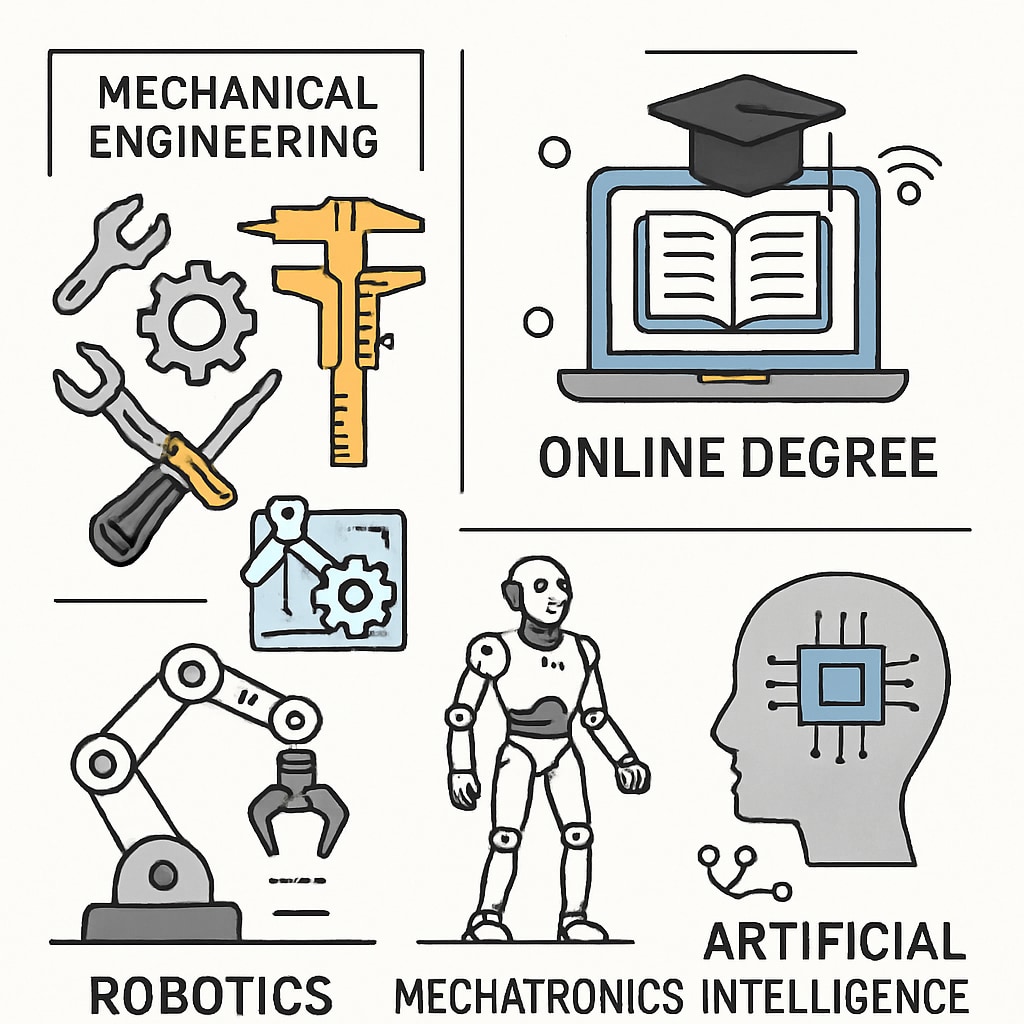In today’s fast-paced job market, pursuing an online degree alongside a primary mechanical engineering program can be a game-changer for students. Balancing a rigorous engineering curriculum with an additional academic credential might seem challenging, but the benefits often outweigh the difficulties. This article explores the feasibility, advantages, and strategies for mechanical engineering students to leverage online degrees for enhanced career planning.

Why Consider an Online Degree Alongside Mechanical Engineering?
For mechanical engineering students, the technical expertise gained during their primary degree is invaluable. However, diversification of skills through an online degree in complementary fields such as business management, computer science, or data analytics can significantly boost employability. According to Britannica, engineering disciplines increasingly intersect with fields like artificial intelligence and automation. A second degree can help students meet these evolving industry demands.
Additionally, online degrees provide flexibility, allowing students to tailor their schedules around existing coursework. This adaptability makes it feasible to balance dual academic commitments without compromising performance in either area.
Benefits of a Dual Educational Pathway
Pursuing an online degree while studying mechanical engineering opens doors to new opportunities and strengthens professional profiles. Key benefits include:
- Skill diversification: An additional degree broadens expertise, making candidates more competitive in interdisciplinary roles.
- Networking opportunities: Online education often includes collaboration with students and professionals from various industries.
- Career advancement: Employers value candidates with knowledge in multiple domains, as it demonstrates adaptability and initiative.
- Cost effectiveness: Online degrees are often more affordable compared to traditional on-campus programs.
For example, a mechanical engineering student with an online degree in data analytics may qualify for roles in predictive maintenance or smart manufacturing, areas that are rapidly growing in relevance.

Challenges and Practical Solutions
While the advantages of earning an online degree are clear, students should be mindful of potential challenges such as time management and academic overload. Here are some practical strategies to overcome these obstacles:
- Create a structured schedule: Use tools like Google Calendar to allocate dedicated study hours for each program.
- Prioritize tasks: Focus on urgent and high-impact assignments first, ensuring deadlines are met.
- Leverage resources: Take advantage of online platforms offering study aids, such as Khan Academy or professional forums like LinkedIn.
- Seek support: Discuss your dual-degree plans with academic advisors to receive tailored guidance.
Long-Term Impact on Career Planning
Integrating an online degree into a mechanical engineering education lays a solid foundation for long-term career success. Graduates with dual qualifications are better equipped to adapt to multidisciplinary roles and emerging trends in technology-driven industries. For instance, fields like robotics, AI, and sustainable engineering require professionals with a mix of technical and analytical skills.
Additionally, the professional network built during an online program can prove invaluable for job searches and collaborative projects. As a result, students stand out in competitive markets and have greater opportunities to negotiate higher salaries.
Final Thoughts: Pursuing an online degree alongside a mechanical engineering program may demand careful planning and commitment, but the career rewards are well worth the effort. By diversifying skills and embracing flexibility, students can accelerate their professional growth and position themselves as leaders in the ever-evolving engineering landscape.


